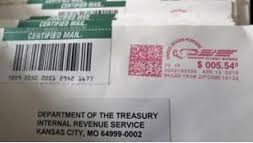Let IRS Notice of Deficiency be a Wake-Up Call
Let IRS Notice of Deficiency be a Wake-Up Call – If you have received an IRS Notice of Deficiency, let it serve as an official wake-up call, informing you that you have a back tax issue that needs attention. Although a Notice of Deficiency is usually sent went the tax balance shown on a tax return is less that the amount the IRS believes you owe, it can sometimes be sent when no tax return has been filed. Either way, the Notice of Deficiency is an official communication from the IRS informing a taxpayer that they have a back tax balance. It is always sent by certified United States mail to the last known address of record for the taxpayer in question.
A Notice of Deficiency not only informs a taxpayer of the amount of their outstanding tax liability, but also provides an explanation of how the back tax amount was determined. It also itemizes any interest or penalties that have been assessed. In addition to providing this detailed account of amounts owed to the IRS, the Notice of Deficiency outlines the accepted process for responding to the communication. In general, the delinquent taxpayer has 90 days from the date the deficiency was mailed (150 days if mailed to an address outside of the United States) to either pay the assessed amount or contest it. Paying the back tax balance requires signing and dating the Consent to Assessment and Collection form, while contesting the assessment involves filing a petition with the United States Tax Court asking for a reconsideration of the back tax amount owed.
The worst possible response to receiving a Notice of Deficiency is no response. If a taxpayer does not sign the Consent to Assessment and Collection or file a petition with the United States Tax Court within the allotted 90 day time period, the IRS will resort to more aggressive collection techniques. Most often, they will issue a Notice of Intent to Levy. This notice requires a response and will automatically be followed by seizure of the delinquent taxpayer’s property if it is ignored for more than 30 days.
If you have received an IRS Notice of Deficiency, let the CPAs and Enrolled Agents at Professional Tax Resolution help you resolve your back tax issues. Our tax settlement professionals have a thorough understanding of tax law together with the experience to know which settlement options will be the best fit for your specific set of circumstances. Visit us today at www.professionaltaxresolution.com or call us at 877.889.6527 to receive a free, no obligation consultation.





